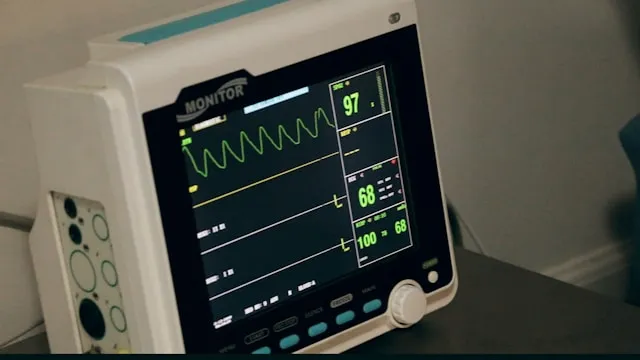Prevention is always better than cure. You may hear a lot of people saying this statement which most of us do not really pay attention to. With all the tempting habits, laziness, and food, people almost forget to value the only pumping organ of the human body.
The heart is the central part of the circulatory system which is responsible for blood circulation. This functionality gives you life to live and the last thing that you can do is maintain the wellness of your body. Love your heart by following these guidelines for a healthier you:
1. Avoid Eating Saturated Fat
Saturated fat is the number one carrier of cholesterol in the body and too much cholesterol can damage not just the heart, but the interrelated body organs as well. This type of fat is consumed from sweet and savoury (salty and spicy) dishes, meat and dairy products, including palm and coconut oils. As early as possible, you have to manage your fat consumption to avoid getting used to eating fatty food eventually.

These days, heart attack is not only prone to the elderly but also to younger men at mid 40's. To avoid unintentional consumption, it's good to familiarize yourself with the products that you have to get rid off. Few examples are listed below:
- Butter
- Cheddar Cheese
- Chocolates
- Pastries
- Ice cream
- Fatty beef, lamb and pork
- Chicken skin
- Sausages
2. Say No to Alcohol & Cigarettes
Most smokers and drinkers say that once you've tried these bad habits, it will eventually become impossible for you to cut them down. Excessive smoking or drinking habit can lead to severe addiction. These traits increase the risk of heart attack due to high blood pressure; and so, it's never too late to discontinue.

However, if you've been practicing these habits for a long time now, I would understand that you may find it a little hard to smoke the last cigarette or drink the last drop of beer. Here are some basic tips to ditch habits of smoking or drinking, slowly but surely:
- Have yourself a stick of cigarette or a bottle of beer for the very last time.
- Keep in mind that you had your last and that's final.
- Count your drink"free or smoke"free days. Knowing how long you've taken will motivate you even more.
- Surround yourself with positivity and good people.
- Don't take the pleasure of "just one" term.
- Don't overthink. Relax and live ordinarily.
3. Exercise, Exercise, & Exercise
Proper and regular exercise is a heart's best friend. It helps the heart to function more efficiently. The more it pushes out the blood, the slower the beating is. Whereas slower beating means lesser risk to hypertension. Your exercise plan must include the following aerobics or cardiovascular exercises:

- Jogging and walking
- Biking
- Stretching
- Swimming
- Playing jumping rope
4. Have a Regular Checkup
To achieve a healthier heart, you have to see your doctor at least once a year. Do this with or without any heart complications. Your doctor will further determine the status of your heart through medical imaging procedures.

If there are irregularities found, he/she will give you some pieces of advice and medical prescriptions for the betterment of your heart. Remember, it's always good to monitor your health before it's too late. This is highly recommended to men who are generally assumed to be more susceptible to common heart failures than women.
5. Follow "5 Fruits a Day" Rule
Start a heart"healthy diet to maintain the wellness of your heart or to combat any heart complexities. Always make sure to include nutritious fruits on every meal you take. Five various fruits a day should become a rule in order to keep diseases away.
Fruits are naturally free of cholesterol and have fewer calories and sodium. Also, they are relatively known as fibrous and rich in vitamins, water, and antioxidants which prevent infections to enter the body. Listed below are top 5 of the most heart"friendly fruits that you need to include your daily meal starting today:
- Berries
- Avocados
- Pineapples
- Almonds/ Walnuts
- Bananas
6. Manage Your Weight
Starting a heart"healthy diet is accompanied by proper management of weight. According to study, obesity is often linked to heart attack among people in middle ages. Given that the above average body mass index or BMI and fat distribution are the most common predictors of coronary heart diseases or enlargement of the heart. Here are some useful tips to manage your weight the right way:

- Avoid eating heavy meals. Eat only the right amount of food. Although you can fight your hunger with smart snacks like wheat crackers.
- Focus on your diet to avoid temptations.
- Limit your mealtime to three. You don't eat four, five, or six times a day.
- Add a few more minutes to your regular exercise.
7. Sleepwell
Sleep deprivation is another factor that triggers hypertension. Some people may not take it seriously. But if you love your heart, never wait for what is worse. Complete 6"8 hours of sleep regularly. Sleeping habit regulates the stress hormones that usually raises the blood pressure. Here's how to obtain the suggested hours of sleep and fight insomnia:

- Learn to program your body clock. Create a sleep"wake cycle at the same time.
- Lessen your intake of caffeinated drinks/products.
- Make yourself relaxed before you go to bed.
- Do not smoke before going to bed. Or just never smoke at all.
- Avoid taking naps in the afternoon.
Understanding Your Heart: The Role of ECG in Heart Health
While lifestyle changes are crucial for heart health, understanding how your heart works is equally important. ECG (Electrocardiogram) interpretation is a vital skill, especially for healthcare professionals and individuals keen on heart health. At ECGEDU.com, you can find comprehensive online courses that simplify ECG and arrhythmia interpretation. These courses are designed for a wide range of learners, from beginners to advanced, and include interactive videos, practice tests, and even the opportunity to earn CME credits. Knowing how to read an ECG can empower you to better understand your heart's health and recognize potential issues early. Check out ECGEDU.com for free access to resources and course samples, and take a step further in caring for your heart.

About the Author:
Sarah Contreras is a full-time blogger focusing on areas of lifestyle and health development. She also writes for Synergy Radiology, a trusted provider of radiology services in Australia. What motivates Sarah to keep writing is her desire to provide information to everyone.
For more information and free personalized guidance, talk to Credihealth Medical Experts.

Reviewed by







